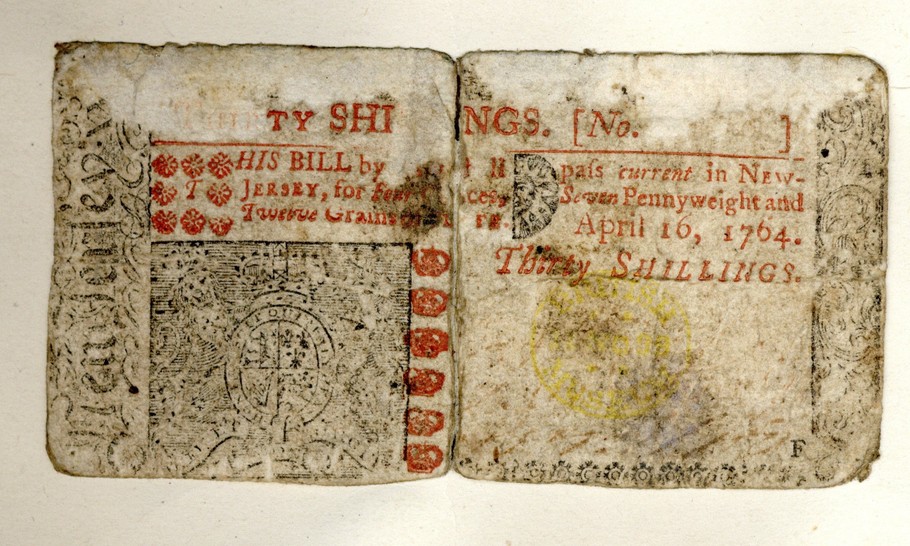Seventeenth century "fake news" left a bloody trail of anti-Semitism in its wake

Bills of exchange were used in the Middle Ages to send money from town to town and later to fund trade from country to country. An early instance of financial innovation, bills of exchange made those with the skills to use them rich, but at the same time stirred fears of financial devilry. A seventeenth-century commercial manual originated the claim that bills of exchange were a Jewish invention and thereby put into circulation a legend that for centuries blended distrust of financial innovation with anti-Semitism. Jews had been expelled from England in 1290 and from France in 1306, and they began drifting back after their expulsion from Spain in 1492 and from Portugal in 1497. In Bordeaux, a port city that had seen Jewish immigration, a commercial lawyer, Étienne Cleirac, published a commercial manual in 1647 where he attributed the invention of bills of exchange to Jews. This claim received canonical status when repeated by Charles Louis de Montesquieu in De l’esprit des lois (1748).
In the case of Montesquieu this attribution was far from pejorative, indeed altogether commendable, since as an Enlightenment philosophe he was partial to the esprit de commerce that he credited with unshackling Europeans from medieval despotism. In England, where Oliver Cromwell had lifted the ban on Jewish immigration in 1656, observers of Jewish progress from the margins to the mainstream of society were similarly supportive. Writing in the Spectator in 1712, Joseph Addison applauded the contribution Jewish merchants were making in the Royal Exchange. But descriptions of the nexus between Jews and business very soon sounded a disparaging, disturbing undertone. The Jews in London’s Royal Exchange according to Voltaire’s Lettres philosophiques “reserve the word ‘infidel’ for those who go bankrupt.” Such hostility was not limited to non-Jews. Isaac d’Israeli (1766 – 1848) recycled Cleirac’s attribution of the Jewish invention of bills of exchange and accused Jews and philosophes alike of abetting financial speculators to amass vast wealth. Isaac d’Israeli withdrew from attending services in Bevis Marks Synagogue and had his children baptised, opening a career pathway that took his son Benjamin to No. 10 Downing Street. The nineteenth century saw the animus against business acumen of Jews enter into myth-making on the left of the political spectrum. Karl Marx echoed Voltaire’s metaphor, “Money is the jealous God of Israel.”
In Germany, sociology emerged in the early twentieth-century out of a post-Marxian mix of economics with history. The study of the nexus between Judaism and capitalism – the latter by then a catch-all term to describe the totality of modern society – preoccupied its early practitioners Max Weber and Werner Sombart. After Weber famously asserted that capitalism was an application of Protestantism turned to business, Sombart wrote The Jews and Economic Life where he contended that the frame of mind most conducive to modern capitalism was fostered in Judaism. Max Weber did not yield to Sombart and returned to study links between religion and social norms in Ancient Judaism . But they never settled their dispute as Weber died in 1919 and so did not live to see the fascist turn that sociology took in Germany where anti-Semitism ran riot by the time Sombart died there in 1941.
The unhappy afterlife of the legend that Jews invented bills of exchange could have been cut short had Cleirac and his followers only taken a hint from the financial terminology used to describe bills. The French term for a guarantee, aval, derives from hawala, the Arab term for money transfers, and cheques, which are bills of exchange drawn on a bank, come from the Persian čak. Yet even Montesquieu, a scholar who authored the Lettres Persanes, was blindsided to the fact that money markets existed in tenth-century Baghdad. The Promise and Peril of Credit picks out a particular strand in the history of economic thought that came to be woven into a much larger skein of anti-Semitic memes at both ends of the political spectrum. Not the least of the achievements of Francesca Trivellato, an historian at Princeton’s Institute of Advanced Study, is to show how the long tail of fake news can do damage for centuries.
Francesca Trivellato: The Promise and Peril of Credit: What a Forgotton Legend about Jews and Finance Tells Us about the Making of European Commercial Society. Princeton University Press. 2019




